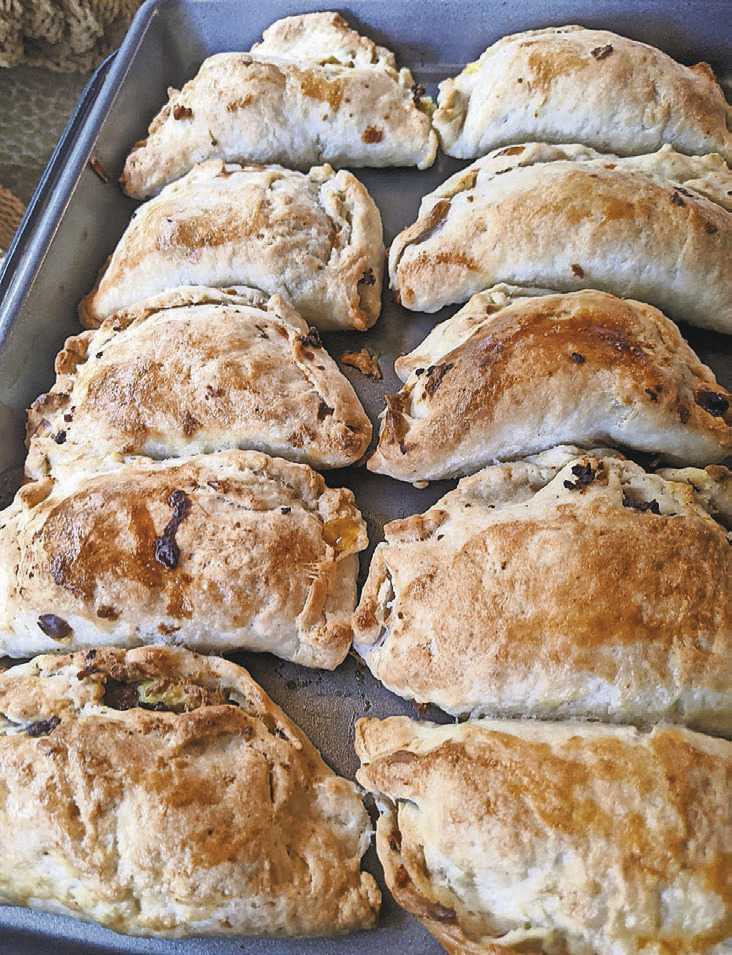All over the United States, different regions have their favorite fast food. Californians love In-N-Out Burger, the south can’t get enough Chickfil- a and the mid Atlantic rushes to Bojangles. But the favorite fast food in the Upper Peninsula isn’t from a chain restaurant. It is served from restaurants, roadside stands, grocery stores, and community groups, and has been around longer than any fast food chain. It’s the pasty, a filling and delicious meal that can be eaten on the go in sweet or savory versions, and every Yooper has their favorite.
While Native Americans have been mining copper in the Upper Peninsula for millennia, European immigrants were the primary miners in the 1800s. Many came from Cornwall, England when the tin and copper mining there dried up, bringing with them the staple miners’ lunch: beef, potato, rutabaga and onion in a half circle of dough, etched with the miner’s initial, with the crimped edge providing a sanitary handle to protect the diner from not just dirty, but arsenic coated, hands. Fortunately, the bucca, hobgoblins the Cornish believed lived in mines, came to eat the crusts left behind and showed their appreciation by not causing trouble.
The Cornish emigrants introduced the pasty around the world; from Australia to Montana to Pennsylvania and other mining regions. But nowhere else did it become a cultural staple like in the Upper Peninsula. This is due in part to the being adapted by the later arriving Finnish miners who switched out the rutabaga for carrots and diced instead of sliced the vegetables. Both versions are still sold in the U.P. Harder to find are the two course pasty, which included a sweet fruit filling at one end. And while ketchup is considered the proper condiment, gravy is permitted.
Mentions of pasties go back one thousand years, even showing up in Robin Hood stories and Shakespeare plays. While the ingredients have changed from the earlier years when they were often filled with venison or other game to poorer times when meat was replaced with extra potato, the Michigan Pasty sold at most roadside stands sticks to ground beef, setting it apart from the modern Cornish Pasty which uses diced steak. Since 2011 it has been granted protected geographical indication, which means to be called a Cornish Pasty it must be made in Cornwall following a specific recipe, while the Michigan pasty can be adapted for preference, variety and innovation while still being distinctly local. Whether for breakfast, dinner or dessert, at home, a restaurant or church, Yoopers are proud to share their love of the pasty, and the history of their ancestors who brought it across the ocean when they began a new life.
P.S. Of course this doesn’t need to be said to locals, but in case there are any readers from outside the area, pasty is pronounced pass – tee, not paste – ee.
Watch this space for a future article on some of our favorite local pasty shops.
